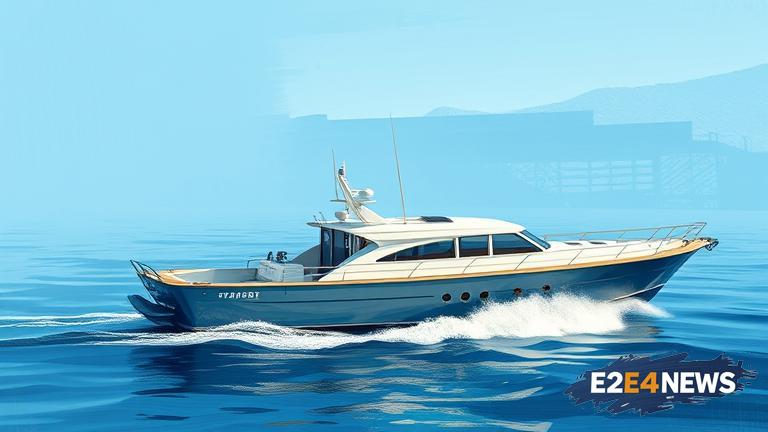The marine industry is undergoing a significant transformation as it moves towards decarbonization. With the increasing awareness of climate change and its impact on the environment, companies and organizations are working together to reduce carbon emissions and create a more sustainable future for boating. One of the key drivers of this shift is the growing demand for eco-friendly boats and yachts. As consumers become more environmentally conscious, they are seeking out vessels that not only reduce their carbon footprint but also provide a unique and enjoyable experience. In response, manufacturers are investing in research and development to create more sustainable and efficient boats. This includes the use of alternative fuels, such as electric and hybrid propulsion systems, as well as the implementation of energy-efficient designs and materials. For example, some companies are using advanced materials, such as carbon fiber, to reduce the weight of their vessels and improve their overall performance. Others are incorporating solar panels and wind turbines to generate power and reduce reliance on fossil fuels. Additionally, there is a growing trend towards sustainable boat maintenance and repair, with companies offering eco-friendly cleaning products and recycling programs for old boats. The decarbonization of the marine industry is not only good for the environment, but it also presents a significant economic opportunity. As the demand for sustainable boats and yachts continues to grow, companies that invest in decarbonization are likely to see significant returns on their investment. Furthermore, the shift towards decarbonization is also driving innovation and job creation in the industry. As new technologies and products are developed, new job opportunities are emerging, from engineers and designers to sales and marketing professionals. However, the transition to decarbonization is not without its challenges. One of the main obstacles is the high upfront cost of sustainable boats and yachts, which can be prohibitively expensive for many consumers. Additionally, there is a need for greater investment in infrastructure, such as charging stations and fueling facilities, to support the growth of sustainable boating. Despite these challenges, the marine industry is making significant progress towards decarbonization. For example, some companies are offering financing options and incentives to help consumers purchase sustainable boats and yachts. Others are investing in education and training programs to help industry professionals develop the skills they need to work with new technologies and sustainable materials. Moreover, governments and regulatory bodies are also playing a crucial role in supporting the transition to decarbonization. For instance, some governments are offering tax incentives and subsidies to companies that invest in sustainable technologies and products. Others are implementing policies and regulations to reduce carbon emissions and promote sustainable boating practices. In conclusion, the decarbonization of the marine industry is a complex and multifaceted issue that requires a collaborative effort from companies, organizations, and governments. While there are challenges to be addressed, the potential benefits of decarbonization are significant, from reducing carbon emissions and promoting sustainable boating practices to driving innovation and job creation. As the industry continues to move forward, it is likely that we will see significant advancements in sustainable technologies and products, as well as a growing demand for eco-friendly boats and yachts. The future of boating is sustainable, and it is an exciting time for the marine industry. With the right investment, innovation, and collaboration, the industry can reduce its carbon footprint and create a more sustainable future for generations to come. The decarbonization of the marine industry is a journey that requires patience, persistence, and dedication. However, the rewards are well worth the effort, and the industry is poised for a significant transformation in the years to come. As consumers, companies, and governments work together to promote sustainable boating practices, we can expect to see a significant reduction in carbon emissions and a growing demand for eco-friendly boats and yachts. The marine industry is on the cusp of a new era of sustainability, and it is an exciting time to be a part of it.
